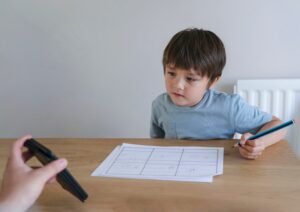Myths
- Speaking two or more languages to a child can “confuse” them, so it’s better only to speak one language.
- Bilingual children are delayed in learning language compared to peers who only speak one language.
- People who are bilingual acquire their two or more languages in childhood
- Children become bilingual just by listening to people around them speak the second language.
- Suppose your child uses both languages in one sentence. In that case, learning two different languages will confuse them.
Facts
- All children are capable of learning multiple languages, including children with developmental delays and learning disabilities.
- Bilingualism does NOT cause language delays and can improve children’s abilities to learn new words, identify sounds, and problem-solve.
- You can become bilingual at any point in your life, whether in childhood or adulthood.
- Learning a language is an active process that required many opportunities for children to practice communicating with others.
- Code-switching is a normal part of bilingualism and is not a concern if your child uses two languages in their sentences.

